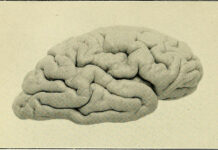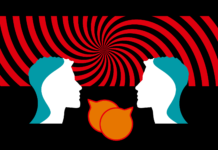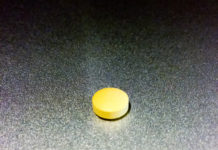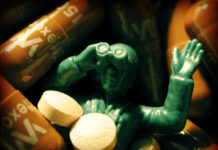Police Violence Victims at Increased Risk of Psychotic Symptoms
Researchers examine links between police victimization and psychotic symptoms in a topical new study.
Researchers Fail to Predict Criminal Intent with Brain Scans
A new study in the journal PNAS explores whether brain scans are ineffective at identifying criminal intent in carefully designed situations.
Long-Term Social Supports Needed After Onset of Psychosis
New data on the effects of social support after early onset of psychosis suggests that patients with intense social support function better than those without such help, but than once supports are removed the effects diminish.
Study Investigates Long-Term Effects of Social and Emotional Learning Programs
Social and Emotional Learning (SEL) programs have gained popularity in U.S. schools in recent years. A new study examines the nature and longevity of their impact on students.
Child Poverty Linked to Early Neurological Impairment
A new NIH-funded study suggests that children from low-income environments are more likely to have neurological impairments. The researchers claim that these neurodevelopmental issues are “distinct from the risk of cognitive and emotional delays known to accompany early-life poverty.”
Researchers Call for Reappraisal of Adverse Mental Effects of Antipsychotics, NIDS
In a study published yesterday, researchers from the Nippon Medical School in Tokyo bring attention to a condition known as neuroleptic-induced deficit syndrome (NIDS)...
Time for a Paradigm Shift in School Psychology Interventions
Why do ineffective classification and intervention processes linger in school psychology, and what’s the alternative?
“Psychotic Symptoms in Children on Stimulants. What are the Implications for the Clinician?”
“A little background digging revealed to me that this study is the tip of a new iceberg relative to ADHD diagnosis, stimulant treatment, and...
Social Adversity and Crime Victimization Increase Risk of Psychotic Experiences Five Fold
Researchers parse out factors within urbanicity that leads to risk for psychotic experiences.
Emotional Child Abuse Just as Harmful as Physical Abuse
Different types of child abuse have equivalent psychological effects, according to a study in JAMA Psychiatry. It has previously been assumed that emotional and verbal abuse could have different or less harmful impact on a child’s psychology than physical or sexual abuse, but research now suggests that these forms of abuse can be just as damaging.
“Misuse Of ADHD Drugs By Young Adults Drives Rise In ER Visits”
"It's no secret that stimulant medications such as Adderall that are prescribed to treat symptoms of ADHD are sometimes used as 'study drugs' aimed...
“Psychosis: With Early, Informed Intervention, There’s Hope”
Columnist Nev Jones writes about the lack of adequate care for people in the US experiencing a first-episode of psychosis. “Evidence-based (or informed) psychotherapies...
Early Attention to Life Circumstances and Relationships Improves Outcomes for Psychosis
Coordinated care with employment support and family therapy leads to superior outcomes for those diagnosed with psychotic disorders.
Minority and Immigration Status Associated with Psychosis Risk
Ethnic minorities and those who migrated during childhood have an elevated risk for psychosis, study finds.
The Ethical Challenges of Early Intervention in Psychosis
-Columbia University psychiatrist Paul Applebaum reviews the challenges of intervening early in psychosis before symptoms emerge, and of doing so in an ethically responsible manner.
Enough is Enough Series, #5 – The ADHD Fiction is Exposed. The French Have...
The time has come that the fictitious ADHD qualifies for my ‘Enough is Enough’ series. It’s time to stop addressing pharmaceutical psychiatry on its own terms: its fraudulent and corrupt 'science,' its spurious 'evidence base,' and its imaginary psychiatric ‘diseases.’ I’m done with this. The evidence is in. Let’s get real. Psychiatry has become a profession of drug pushers. As a psychiatrist I am beyond troubled. Let’s get real.
Leading Researchers Critique Current Paradigm for Studying ‘Schizophrenia’ Risk
Re-conceptualizing the Clinical-High-Risk/Ultra-High-Risk Paradigm: A critique and reappraisal
In Chronic Patients, Antipsychotics Have Limited Efficacy in Reducing Symptoms
A large review and meta-analysis of 167 studies across 60 years dissects placebo-controlled randomized controlled trials of antipsychotic drugs.
New Research on Patient-Centered Deprescribing for Antipsychotics
Researchers review the risks and benefits of deprescribing from antipsychotic drugs and advocate for a patient-centered approach to tapering.
Physical Activity and Exercise May Prevent Depression, Study Finds
Everyday exercise, regardless of intensity, can prevent the development of depressive symptoms.
The Role of Intergenerational Trauma in the Perpetuation of Childhood Maltreatment
A new study examines the role parent borderline pathology plays in the perpetuation of childhood maltreatment.
Over 16,000 Australian Children Prescribed Antipsychotics
From The Sydney Morning Herald: New data from Pharmaceutical Benefits Scheme shows that a total of 16,570 Australian toddlers, children, and teens under 17 were...
Bringing Trauma-Informed Care to Children in Need
From STAT: Numerous studies have confirmed that adverse childhood experiences are common and can lead to negative long-term health outcomes. Many pediatricians and hospitals are working...
“Drugs, Greed and a Dead Boy”
New York Times columnist, Nicholas Kristof, relates the story of Andrew Francesco, a boy who began taking Ritalin at age five and died from complications with Seroquel when he was fifteen. His father, a former pharmaceutical industry executive, reveals the industry’s greed in his memoir “Overmedicated and Undertreated.” Now the industry is pushing for a first-amendment right to market its drugs for off-label uses.
New Review of Antipsychotics for Schizophrenia Questions Evidence for Long Term Use
A systematic review of the limited research available on the long-term effects of antipsychotics finds fewer symptoms in those off of the drugs.
























